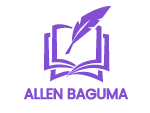I must applaud my teachers at Makerere University, Prof. Oswald Ndoleriire and Dr. Sallie Simba Kayunga on their position regarding the sciences hype by government. This was the very same hype that greeted us over 20 years ago as we joined university at the time government scrapped students’ allowances, arguing that the monies saved were to ‘Boost sciences’; that the country could ‘not develop by studying ‘sociology’…. and similar arguments.
Uganda has not fundamentally changed over this period. Where then is the problem? Science is nothing but man’s capacity to tame the environment and use it to his advantage. This taming of the environment is determined by the kind of society that we need to build and live in. And this is shaped by the humanities: the type of economy we must build; the values that make us human, the factors behind the current global dynamics, which are neither divinely-ordained nor accidental.
Apartheid South Africa would train doctors researching on how to eliminate Africans because that was the ideology of the country’s leadership then. Singapore was driven to her current economic and technological might thanks to the values held and instilled in the people by the leadership, thus subjecting science to service their goals and aspirations as a society
Sciences can only have meaning in a particular socio-economic context. One story that has been repeatedly told is about the current CEO at Kenya Airways. While a pupil during a study tour to Magadi Soda Ash Industries, he was amazed by the whole complex and manufacturing process. He asked what it would take for someone to work there. He was told it would take studying sciences at college. Armed with this inspiration, he read as was counselled, and upon graduation, literally carried his degree certificate to the company, and ‘literally’ demanded for his job .The rest is history, as he settled and rose to head the same company before moving to Kenya Airways.
What is pertaining in Uganda today? Some schools take Pupils on ‘tours’ move to shopping malls, leisure spots, and beaches. What inspiration will they draw from there? Which role models will they aspire to emulate?
In the current Ugandan context, when tomorrow I take hold of the magic wand, the entire education system shall be overhauled along the following lines: Upon completing A-level, there must be a 3-year Apprenticeship Phase for all students before joining tertiary institutions, be it government or private. EVERYBODY. This apprenticeship phase shall be implemented on government farms and factories in each region. The revived UDC has as its first task, the resurrection of government farms and key parastatals in each region, guided by the Agricultural Zoning Plan 2005
Once posted to these enterprises, students will spend 3 years of practical apprenticeship, in a curriculum that will be a hybrid of:
• Tanzania’s Jeshi la Kujenga Taifa http://Tanzania’s Jeshi la Kujenga Taifa
• Costa Rica’s E.A.R.T.H University https://en.wikipedia.org/wiki/EARTH_University
• Nigeria’s Covenant University
• Ghana’s University of Development Studies
• Rwanda’s Ingando https://rwandapedia.rw/hgs/ingando/overview
• Kenya’s National Youth Service https://en.wikipedia.org/wiki/National_Youth_Service_(Kenya)
• Malaysia’s Oil Palm Scheme.
Any keen policy-maker can research more about these programmes.
The programme will entail practical apprenticeship in the various departments and sections of the government enterprises, alongside ideological orientation, whose course content will include:
Basic International Political Economy: explaining the genesis of the current global imbalance, which is neither accidental nor a divine ordination. Core books to read will include
• The Malay Dilemma
• From Third World to First World
• How Europe Underdeveloped Africa
• Confessions of an Economic Hitman
• Lords of Poverty
• Kicking Away the Ladder
• Historical and Dialectical Materialism
• Elephant Song
• Men of Men
• King Leopold’s Ghost
• Management in Ten Words
And many others
Kiswahili, plus each student learning one language and culture outside their culture/language group.
• Fundamentals of Ethics
• Fundamentals of Leadership
• Fundamentals of Financial Management
• Games and Sports (including the Googoro Curriculum) and other leisure activities, plus internet link and cable television
• The true History of Africa, as seen through the lenses of sages like Justice Tabaaro.
To expose each student to other Ugandans, students will be cross-posted, with no student posted within their region of birth.
Upon graduation, students will join universities and other tertiary institutions according to the Manpower Development Programme in the country and in the region, based on a 3-decade development projection.
In the course of the apprenticeship, students will be paid a stipend, which will be pooled into a central Tertiary Education Fund, to finance their tertiary education, upon completion of the apprenticeship.
This is what a pre-university apprenticeship programme is all about. Skill Apprenticeship in productive government enterprises, a liberated mindset, is what will produce a generation that shall claim the 21 century for Uganda and Africa.
This is what will transform Uganda and Africa.
And this is what I SHALL implement, WHEN tomorrow; I get hold of the magic wand.
“Skill Apprenticeship in productive government enterprises, a liberated mindset, is what will produce a generation that shall claim the 21 century for Uganda and Africa” Ben Kahunga Matsiko
© Ben Kahunga Matsiko 2022
Email: isherugaba@gmail.com
Google: http://Ben Kahunga Matsiko
Photo courtesy of : pexels-photo-414860
More of Ben Kahunga Matsiko excellent pieces…
Reviving Uganda’s Textile Sector, NEMA Saves Mother Planet and our Posterity, WE MUST DEFEAT CANCER , BTVET: LET’S DELETE ‘B’ AND ‘V’; AND WE ADD ‘A’, Universal Health Insurance Doesn’t Replace Health-Centres and so much more… Blogs
Pick and buy a book from the…

